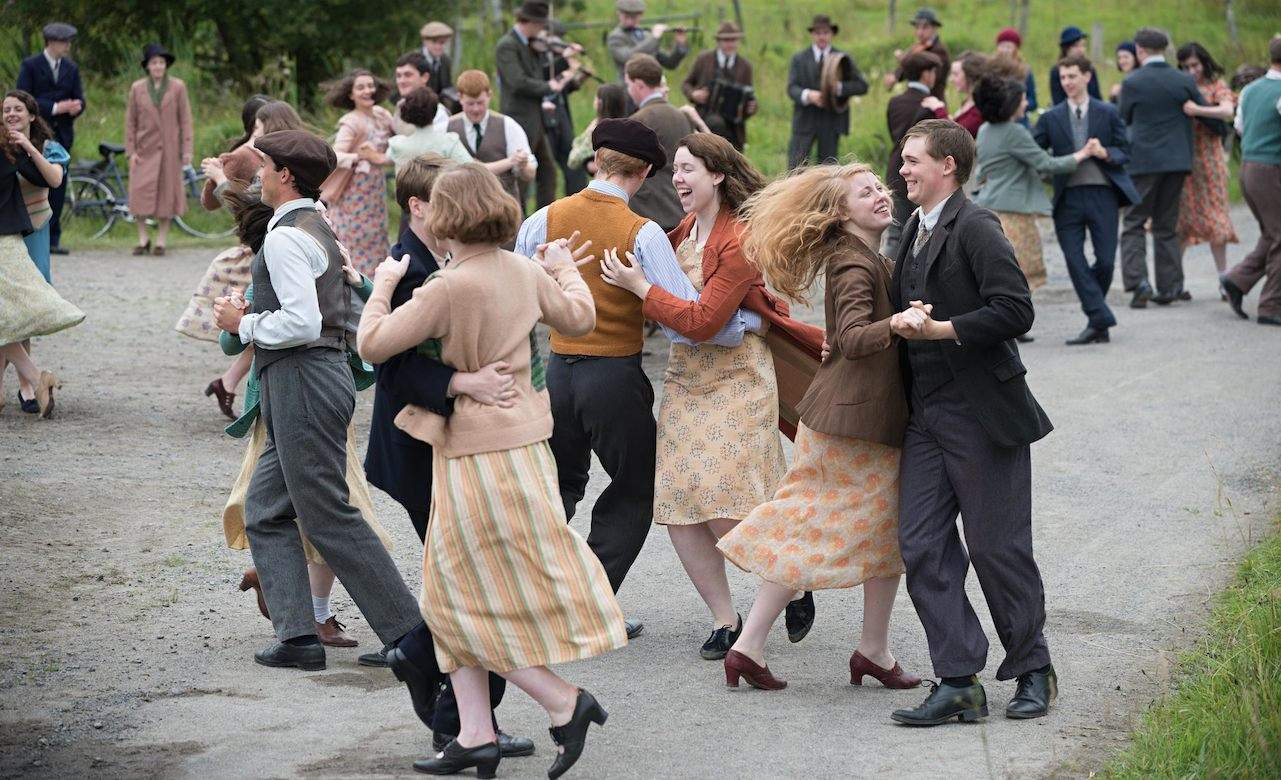Jimmy’s Hall
A more optimistic side to Ken Loach than audiences may have come to expect.
Overview
Ten years after the conclusion of the Irish Civil War, a local folk hero returns to his small country village, much to the chagrin of the conservative priests and landowners. Sounds like a typical set-up for a Ken Loach movie; the 78-year-old English director has made a career out of grim, socially conscious dramas about the injustices perpetrated against the working class. But while Jimmy's Hall certainly contains many characteristics typical of the veteran filmmaker, the film ultimately stands out as one of his lightest and most hopeful works. Not that that's saying a great deal.
Indeed, while Jimmy's Hall is buoyed by its faith in the power of the people, the Loach film it most immediately recalls is actually one of his bleakest. 2006's Palme d'Or winner The Wind That Shakes the Barley chronicled the bloody Irish conflict of the early 1920s, and in some ways could be seen as a spiritual prequel to Jimmy's Hall — a film in which the personal and social fallout of the war is still being felt a decade latter.
Dublin-born actor Barry Ward plays Jimmy Gralton, a real-world political activist and the hero of Loach's tale. After spending the '20s living in America, Jimmy returns to Ireland largely to care for his elderly mother but soon draws the ire of the community's ruling elite — led by the overzealous Father Sheridan (Jim Norton) — when he decides to reopen the dilapidated village dance hall. To the priest, it's only logical that where American jazz and pelvic thrusts holds sway, communist schemes soon follow. If it all sounds similar to the plot of Footloose, that's because it is.
It's obvious why Loach, an ardent leftist, was attracted to Gralton's story. Jimmy is an easy hero to root for; a man of the people, fighting tooth and nail for the little guy against a stuffy, unfeeling villain. It's an appealing underdog story, rousing if rather simplistic. Screenwriter Paul Laverty's dialogue can be pretty on the nose in regards to the politics of the era, and let's face it, Loach has never been one to keep his ideological sympathies hidden.
Thankfully, the film is rather more subtle when it comes to the dynamic between Jimmy and Oonagh (Simone Kirby), his onetime sweetheart who has since married somebody else. A scene in which the two of them dance silently in the moonlit hall is one of the most beautiful moments that Loach has ever put to film. Likewise, his portrayal of the villages' young people — determined not to make the same mistake as their parents — shows a more optimistic side of the filmmaker than audiences may have come to expect.





